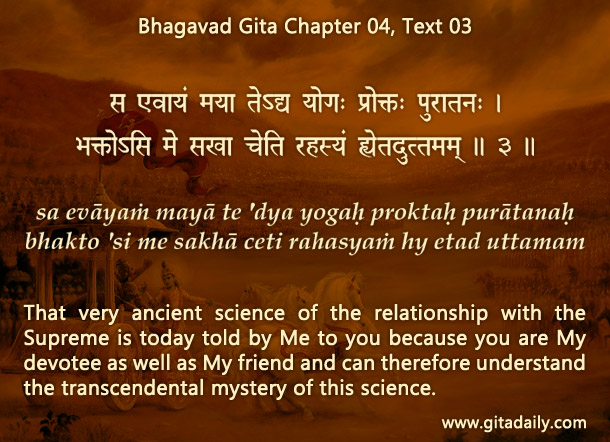Revelation is not just a one-time event that happened long ago. No doubt, at extraordinary moments in human history, God interacts directly with humans, without the screening medium of material nature, and shares wisdom meant to guide humanity at all times.
This essential message revealed in scripture is eternal and transcendental; still it is delivered at a particular time in history. And each time has its own ethos – its own ways of thinking and speaking. Accordingly, revelation addresses first and foremost the audience of that time using contemporary concepts and terms. Recipients of that revelation learn it by living and loving according to it. Having thus internalized it, they pass it on in a way intelligible and relishable to the next generation. And the same process of internalization and transmission generation after generation keeps scripture perennially relevant. The Bhagavad-gita underscores the necessity of the living tradition when Krishna states (04.03) that, as the knowledge he had revealed long ago had become lost, he is now sharing it with Arjuna.
Those who study revelation from outside its living tradition often find the message incomprehensible, irrelevant or even incoherent. They fail to recognize that revelation is not static information, but is dynamic wisdom that needs to be understood from the living tradition. If they strive to learn from the living tradition, then the outer revelation that had occurred in the past becomes an inner revelation happening in the present. That is, by learning from the living exponents of the tradition, they realize what the revelation’s time-independent core is, how that core speaks to them today and how it addresses and answers not only the timeless questions that have always vexed humanity but also the specific questions that exercise the present generation.
Explanation of article:
Podcast:


Can you send quotes by SMS. It will be useful to all and can reach many people and can be spiritually raised.
The articles are too long for sms. You can get them on whatsapp: Add +91-7776915461 to your WhatsApp contacts and WhatsApp “Send me daily Practical Gita” to the number.
ys
ccdas